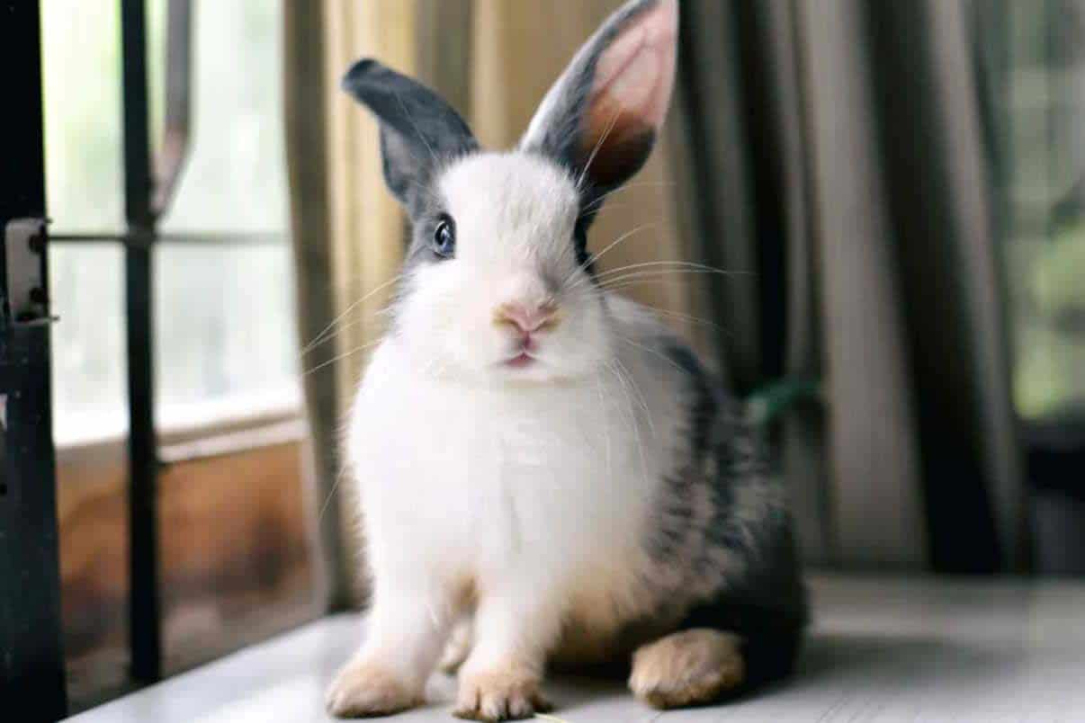What Does It Mean When a Rabbit Stares At You?
Have you ever noticed your pet rabbit staring at you with those big, curious eyes? It’s not uncommon for rabbits to fixate their gaze on their owners or other humans in their environment. While it may seem mysterious, there are actually several reasons why rabbits exhibit this behavior. In this article, we will explore what it means when a rabbit stares at you and provide insights into their unique communication methods.

Rabbit Body Language and Communication
Rabbits are social animals that communicate through a combination of body language, vocalizations, and scent markings. Being prey animals, rabbits have developed keen observational skills and rely heavily on non-verbal cues to convey their needs, feelings, and intentions. Understanding rabbit body language is essential for rabbit owners to ensure their pets’ well-being and establish a strong bond with them.
When a rabbit stares at you, it’s important to pay attention to its overall body posture and other accompanying signs to interpret its message accurately. Here are some common rabbit body language cues:
- Ears: Rabbits have excellent hearing and use their ears to express their emotions. If their ears are erect and facing forward, it usually indicates curiosity or attentiveness. However, if their ears are flattened against their body or turned backward, it may signal fear or aggression.
- Body position: A relaxed rabbit will have a loose body posture, with their hind legs stretched out and their tail in a neutral position. Conversely, if a rabbit’s body is tense, crouched low to the ground, or hunched, it may signify fear or stress.
- Eye contact: Rabbits can communicate a lot through their eyes. Direct, prolonged eye contact is a way for them to establish dominance or express trust. However, if a rabbit stares while also displaying other signs of aggression, such as growling or lunging, it’s important to exercise caution.
- Facial expressions: A rabbit’s face can reveal a wealth of information about its mood. Relaxed facial muscles, with the mouth slightly open and eyes bright, indicate contentment. Conversely, narrowed eyes, teeth grinding, or a tense expression may indicate discomfort or pain.
Reasons Why a Rabbit Stares At You
Now that we understand the basics of rabbit body language, let’s delve into the reasons why rabbits may stare at their owners:
- Curiosity and observation: Rabbits are naturally curious creatures and enjoy observing their surroundings. Staring at you might simply be a rabbit’s way of studying and understanding human behavior. They may be interested in your movements, facial expressions, or even the sounds you make.
- Bonding and trust: If your rabbit stares at you with a relaxed body posture and maintains eye contact, it can be a sign of trust and bonding. Rabbits will often initiate eye contact as a way to show affection and establish a closer connection with their owners.
- Seeking attention or interaction: Like many pets, rabbits crave social interaction and may stare at you to get your attention. They might be looking for playtime, treats, or simply seeking companionship. Responding to their gaze positively can strengthen the bond between you and your furry friend.
- Warning or territorial behavior: In some cases, a rabbit’s stare may be a warning sign. If their body is tense, their ears are flattened, or they growl or lunge in your direction, it’s best to give them space and avoid any sudden movements. These behaviors can indicate that your rabbit is feeling threatened or territorial.
Tip: It’s important to remember that each rabbit is unique, and their behavior may vary. Pay attention to your rabbit’s individual personality and body language patterns to better understand their intentions and needs.
Frequently Asked Questions (FAQs)
1. Should I be concerned if my rabbit stares at me for long periods?
Not necessarily. Rabbits have a natural instinct to watch their surroundings and observe potential threats. Unless your rabbit is displaying signs of aggression or fear along with the prolonged stare, it’s likely they are just being curious or seeking interaction.
2. Can eye contact with my rabbit scare or stress them?
Direct eye contact can indeed intimidate rabbits and make them feel threatened or stressed, especially if it is accompanied by other aggressive behaviors. It’s generally best to avoid prolonged eye contact unless your rabbit initiates it and appears relaxed.
3. What should I do if my rabbit stares at me and growls?
If your rabbit stares at you while growling, it’s crucial to respect their boundaries and give them space. Growling is often a sign of fear or aggression, and attempting to approach or interact with your rabbit in these moments can escalate the situation. Consult with a rabbit-savvy veterinarian or animal behaviorist for guidance on handling aggressive behaviors.
4. Can rabbits recognize their owners through eye contact?
Rabbits are highly perceptive animals and can form strong bonds with their owners. While they may not recognize you solely through eye contact, rabbits can associate your face, voice, scent, and overall body language with positive experiences. Consistent interaction and positive reinforcement can strengthen your rabbit’s recognition and bond with you.
In conclusion, when a rabbit stares at you, it can have various meanings depending on the context and accompanying body language. From curiosity and trust-building to seeking attention or exhibiting warning signs, understanding your rabbit’s unique communication methods is crucial for maintaining a harmonious relationship. Remember to observe their overall body posture, facial expressions, and other cues to accurately interpret their intentions and provide appropriate responses.
Related Articles…
Copyright Notice:
All images featured on this site are sourced from the internet, copyrights belong to respective owners. Should you own any image and require it to be removed, please contact us.